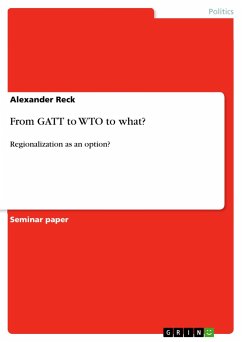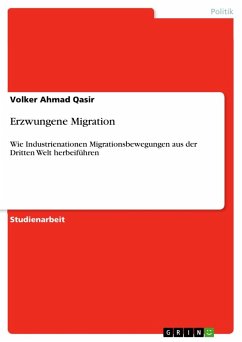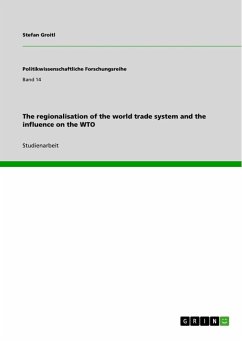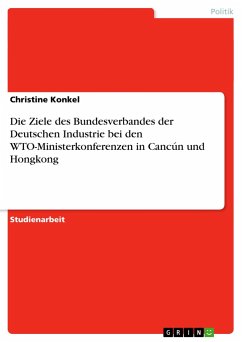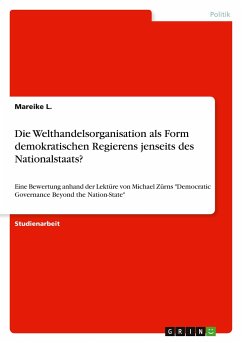Seminar paper from the year 2008 in the subject Politics - International Politics - Topic: International Organisations, grade: 1,7, University of Potsdam, language: English, abstract: Die Ursprünge und aktuelle Problemstellungen des multilateralen Handelssystems.The multilateral trade Regime, the World Trade Organization, arrived, asso often in its past, at a cross road. The Doha Development Agenda is now in its7th year, once again cancelled and once again tried to be revitalized. How come?On the one hand a broad consensus exists, saying that free trade is better foreveryone. From farmers and fishermen to bankers and C.E.O.'s, everybody fromwhite to blue-collar is supposed to gain welfare from global free trade. And thosewho don't even have collars can get some through trading. China's rise in the lastdecades is not imaginable without global trade. Almost 1 billion people profitfrom that and that is just one country!But on the other hand there are protectionist measures, bilateraloverreaching treaties, subsidies for bankrupt industries and non-tariff barriers totrade installed from those countries that benefitted the most of the liberalizationsof the past decades.Today the small ones, the former colonies, the developing countries try topick their piece of the pie and are not willing to let the industrialized countriesbreak the rules they used to engage years ago. They are not willing to take theinequality anymore and raise their voices in one of the only forums they have,where they're treated on a one to one basis.This essay will give an overview about the historic development from theGeneral Agreement on Tariffs and Trade to the World Trade Organization. Theirstructures as well as their development will be pointed out. After exploringlibraries full of literature to the topics of GATT and WTO, the remarkable text byRobert Winham about "The evolution of the global trade regime" appeared to bethe most comprehensive, intelligible and workable. Therefore it is one of the mainsources of this essay. Last but not least regionalization and preferentialism will beexplained in their different facets, concluding with two contrary empiricalexamples for economic and political integration.[...]
Hinweis: Dieser Artikel kann nur an eine deutsche Lieferadresse ausgeliefert werden.
Hinweis: Dieser Artikel kann nur an eine deutsche Lieferadresse ausgeliefert werden.

